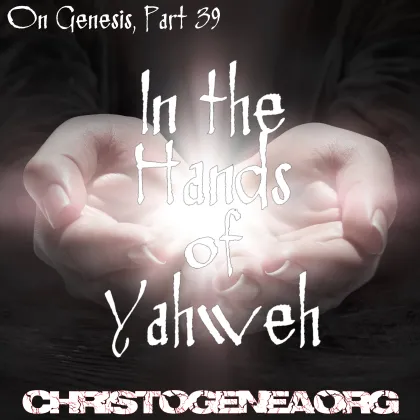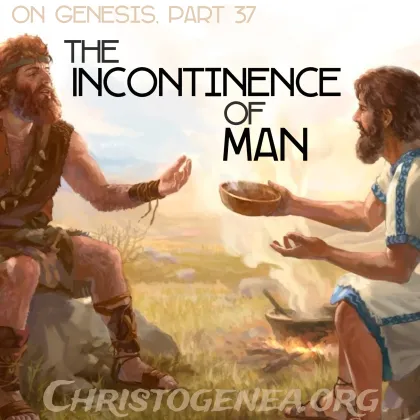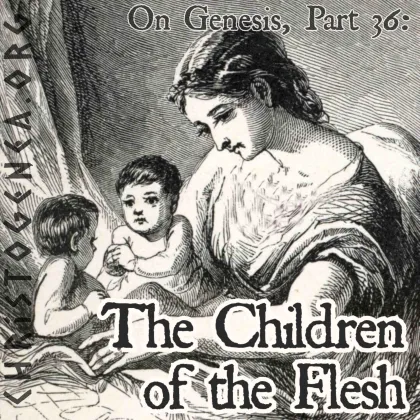On Genesis, Part 39: In the Hands of Yahweh

On Genesis, Part 39: In the Hands of Yahweh
In Genesis chapter 25, there is a description of a pregnant Rebekah suffering from the struggle of the baby in her womb, where Yahweh God had answered and told her that there were two nations in her womb, representing two distinct peoples, and that the elder would be subordinate to the younger. Much later, in Malachi chapter 1, Yahweh announced that He had loved Jacob, and hated Esau. But from the time they were born, Yahweh had no exchanges with Esau, while Esau evidently had never sought God. Apparently, Yahweh permitted nothing which would cause him harm, but gave him every opportunity which Jacob also had been afforded, and he only harmed himself by his own choices. So it is fully evident that Yahweh’s words to Rebekah were prophetic, but He did not express His hatred for Esau until long after Esau himself had exhibited the behavior and the attitudes for which he was hated, in the words of the prophet Malachi.
In the closing verses of that same chapter, there was an event recorded where Esau had sold his birthright to Jacob for a measly bowl of soup. That act was a vivid demonstration of the fact that Esau had despised his birthright rather than having cherished it, since in a time of discomfort, he was willing to give it away in exchange for so little. Esau, having hungered, had no thought nor care for the God who could feed him. Then in Genesis chapter 27 we had seen the rejection of Esau, and the reasons for his rejection were stated explicitly on two occasions. The first of those is in the description of Esau’s wives by Moses where at the end of chapter 26 he wrote “34 And Esau was forty years old when he took to wife Judith the daughter of Beeri the Hittite, and Bashemath the daughter of Elon the Hittite: 35 Which were a grief of mind unto Isaac and to Rebekah.” So if Esau lost his birthright, it is a direct result of this grief which he had caused his parents, as he had taken wives of the people from whom Abraham had admonished his own servant not to procure a wife for Isaac, for which he had even bound that servant to an oath.
























 Please click here for our mailing list sign-up page.
Please click here for our mailing list sign-up page.







